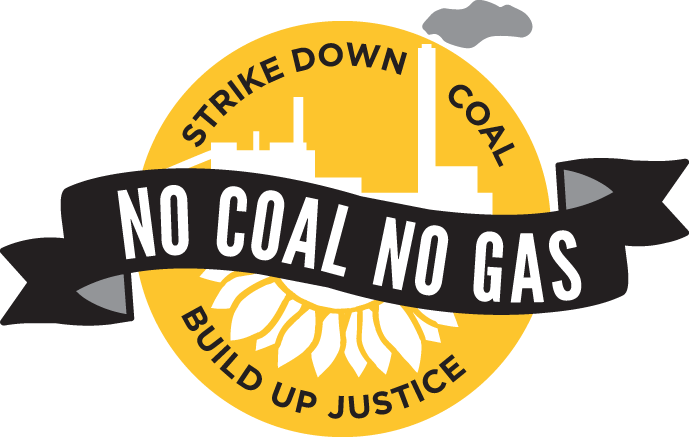Affinity Groups
Affinity Groups come together with a shared purpose that embodies the principles and culture of the No Coal No Gas campaign and its broader commitment to nonviolent action and social transformation.
Well-functioning affinity groups give attention to their deeper relationships within the campaign, their own group and individual learning, and how to safely take action together in ways that can transform ourselves and the people around us.
Why Affinity Groups?
Because as the saying goes: “Culture eats strategy for breakfast.” We can have the best strategy in the world, set all the best plans, pull off all the coolest tactics and yet if our culture of love, care, and our deep commitment to not replicating the harms of dominant society does not translate to our relationships with each other - then we will already be sunk.
Affinity groups are for the most part, small and autonomous groups that gather around a common, shared affinity within a larger, more diverse, campaign. That could include identity or common interest (for example: a group of LGBTQ+ activists or a Quaker action team), location (for example a Burlington, VT affinity group), or skill (song leaders, grief tenders, circus performers, medics) Affinity groups exist outside of activism too! A band, a weekly knitting gathering, a soccer team are all examples of non-activist affinity groups.
No Coal No Gas is committed to building the kind of culture that prevents power from pooling in societally dominant patterns. That can mean taking feedback, conflict, and our own learning seriously. While political parties and non-profit organizations might create chapters (often regionally based and open to anyone joining) affinity groups might choose to accept no new members for a stretch of time or to set boundaries on who can join. This is so that groups can ‘go deep’ with one another - increase the level of safety and relationship felt in the group so that as the group grows in participation within the campaign, affinity groups can be a place to process safety, identity, conflict, and feedback. They are a place where activists can help each other learn and grow!
Because of the safety and trust within groups, they can be a place for new creative ideas, strategy or tactics to be germinated, refined and proposed to the broader campaign, or a base of support when someone feels like they need to raise some red flag to the larger campaign. They can also play a specialized role in a mass action or initiate action on their own.
Lastly, affinity groups are logistically helpful! In No Coal No Gas, our affinity groups have formed regionally so that people can coordinate carpools, jail support, phonebanks, bail funds, action debriefs, trainings! The options are literally endless.
Communication in an affinity groups is:
Transparent ( Are you on Slack? Are you all on the same text thread?)
Regular (Meeting at a set time: once a month, once a week, once a day?)
Accessible (in-person and online)
Relationships and learning in affinity groups involves:
Commitment to building trust, mutual respect, and good will.
Growing together in the face of the work.
Learning:
Building shared understanding around issues of social justice, movement history, and non-violent direct action;
Learning from past experiences within the campaign and applying them in real-time to campaign decisions.
Taking Action together involves:
Assigning roles, providing emotional and logistical support, planning and executing actions including taking initiative, and debriefing (which is part of learning).
Good Qualities of Affinity Groups
What does it look like?
Size between 3-8 people
Should generally like working with one another
Have a sense of group identity — name, symbol, flag, song, theme, skill?
In-person meetings
Knows the balance between autonomy and being part of a larger campaign
Attends NCNG monthly mass calls
Communicates with the coordinating space and affinity group support team about group projects and needs
Autonomous actions and decisions
Autonomy — Takes initiative on actions/projects
An internal decision making structure
Mechanism for learning and evaluating
Diversify / rotation of leadership responsibilities
Hold boundaries around principles and action agreements
Plugging each other in
Recognizing individuals’ gifts
Helping members find roles that suit them - both action roles and internal roles
Regular intentional communication and meetings
Keeping those who miss a meeting in the loop and included
Community and relationships
Culture building
Supporting one another in the campaign
Knowing who each other is + intention to deepen relationships
Work on building trust & respect amongst the group
Honest conversations about needs + capacities + motivations
Practicing risk-taking together
For more information on affinity groups and onboarding, check out our:
Request Form for Affinity Group Support


